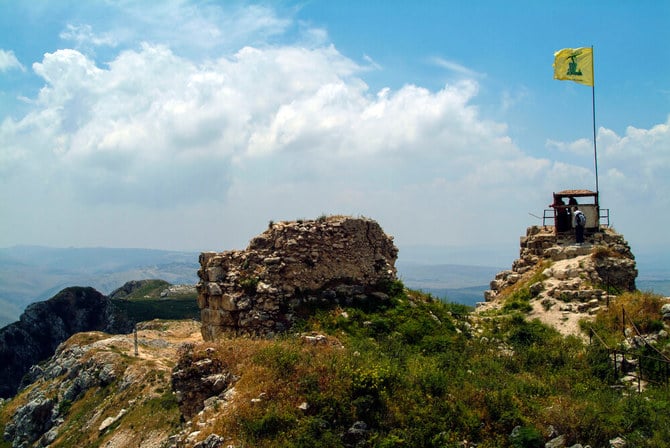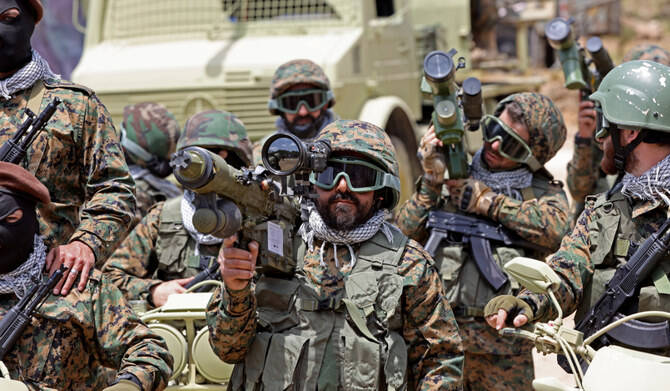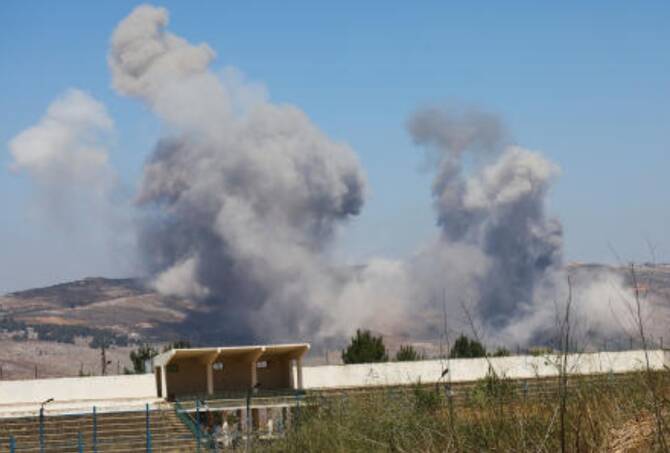BEIRUT: Hezbollah is to remove structures it was building close to the southern Lebanese town of Rmeish following pressure from residents and Maronite Patriarch Bechara Boutros Al-Rahi, who accused it of encroachment.
The party’s Green Without Borders environmental organization has been told to remove all of the facilities, which encroached on properties owned by the Al-Ameel, Al-Alam and Al-Hajj families.
The developments had angered local people, municipal authorities and religious leaders.
Rmeish is located in the far south of Lebanon, about 135 km from Beirut in Bint Jbeil district. It is the largest parish of the Maronite diocese of Tyre.
Father Najib Al-Ameel from Rmeish said: “Since the encroachment took place on property on the outskirts of the town, I went with a delegation of locals to those locations and demanded that such violations stop. However, those who were present insulted us and refused our demands, and even threatened some of us.”
Residents earlier this week accused “the de facto forces in the region of encroaching on lands belonging to the people of Rmeish and threatening some of the owners.”
“These forces bulldozed large areas of land, uprooted trees, erected structures and used heavy equipment to dig in forests belonging to the people of Rmeish,” they said.
“All of this is taking place under the nose of the Lebanese army, which operates in an area subject to Resolution 1701 in the south.”
The Maronite patriarch joined the call for an end to the encroachments and all similar practices that harm coexistence and could lead to an escalation of tensions.
It is unusual for Hezbollah to bow to such pressure, especially in the south, which is considered an incubator for the party.
Rmeish is located within the area of operation of the United Nations Interim Force in Lebanon and is subject to UN Resolution 1701, which was issued in 2006 following Israeli aggression against Lebanon.
It calls for “security arrangements to prevent the resumption of hostilities, including the establishment between the Blue Line and the Litani River of an area free of any armed personnel, assets and weapons other than those of the government of Lebanon and of UNIFIL.”
It also calls for a “full implementation of the relevant provisions of the Taif Accords, and of resolutions 1559 (2004) and 1680 (2006), that require the disarmament of all armed groups in Lebanon.”
Lawmaker Saeed Al-Asmar, from the southern Jezzine district, said: “We hope such shameful acts will not be repeated because they will have devastating consequences as we will never accept to be
weakened or insulted.”
He described the encroachments in Rmeish as “unacceptable.”
“We are counting on the intervention of the security services to deal with these blatant violations, although we know they will not be able to confront the ministate in light of the state’s complete impotence,” he said.
Hezbollah’s media office said: “What happened was a small issue, not a big deal. It was immediately resolved. The media exaggerated the issue.”
Meanwhile, investigations are ongoing into the attack on a UNIFIL vehicle and the death of an Irish peacekeeper in the southern coastal town of Al-Aqabiya, which lies outside the scope of UNIFIL operations.
A Lebanese security source told Arab News that the suspects were Lebanese nationals who went into hiding following the incident but were later arrested.
Fingers were pointed at Hezbollah as its supporters have a long history of attacking UNIFIL patrols.
Both UNIFIL and the Lebanese Army Intelligence Directorate are investigating the incident.






















